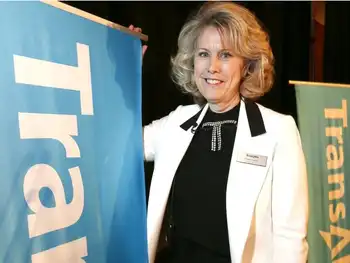Ottawa urged to sell controlling interest in AECL
By Globe and Mail
Electrical Testing & Commissioning of Power Systems
Our customized live online or in‑person group training can be delivered to your staff at your location.

- Live Online
- 12 hours Instructor-led
- Group Training Available
The report by National Bank of Canada recommends that the federal government sell off at least a 51-per-cent interest in Atomic Energy of Canada Ltd.'s commercial operations, according to sources who have been briefed on its contents.
Ottawa has refused to divulge the report's recommendations and has left the fate of AECL in limbo until the Ontario government decides whether to buy the Crown corporation's Candu technology or opt for its main rival, France's Areva Group.
The province, which plans to build its first new reactors since the 1980s, will not likely make a decision for months – even though the bid deadline has already passed.
AECL's future is intrinsically linked to Ontario, because the corporation's value will depend on whether it can sell reactors in its home province.
"If they don't win this competition, they're not in the business. It's over," said Bryne Purchase, a former deputy energy minister in Ontario who is director of the energy and environment program at Queen's University.
But even if AECL succeeds in winning the bid, the federal government, which has been heavily subsidizing the business since the 1950s, plans to restructure the company to make it more competitive.
The National Bank report recommends the government break up AECL, sources confirmed yesterday. The commercial venture, with new investors as majority owners, would handle reactor sales and service, while the government would retain ownership of the research and technology division, which runs AECL's Chalk River laboratories and the NRU reactor. The research reactor supplies a large portion of North America's medical isotopes, which are used to detect and treat cancer and heart disease. "The external financial advice that National Bank Finance has provided is only one component of the review which will continue for some months," Jasmine MacDonnell, spokeswoman for Natural Resources Minister Lisa Raiit, said last night.
Ms. Raitt said the federal government will stand behind AECL's Ontario bid regardless of any restructuring process. Queen's Park, intent on avoiding mistakes of the past that saddled Ontarians with $12-billion in cost overruns on earlier projects, has insisted that the reactor vendors assume the financial risk of potential cost overruns.
As a result, Ottawa will not decide how to restructure AECL until the Ontario process is completed.
The economic crisis has brought the fate of AECL into sharper focus for the federal government, sources said. The Harper government is acutely aware that jobs at AECL, a company that has built up enormous engineering expertise during its nearly 60 years in business, are on the line if it does not win the bid.
The National Bank report underscored the difficulty in disentangling the government from AECL.
Several companies have already expressed an interest in investing in AECL's commercial business, either in partnership with government or buying it outright. They include General Electric Co.; Montreal-based engineering firm SNC-Lavalin Group Inc., which is a partner with AECL in the Candu business; and Bruce Power, a Canadian-owned consortium that owns the Bruce nuclear plant in Ontario.
National Bank recommends that the Chalk River site be excluded because AECL - and its government shareholder - face liabilities totalling about $7-billion to clean up waste at the Chalk River site.
"No company would want to buy that," said Greenpeace energy campaigner and nuclear opponent Shawn-Patrick Stensil.











